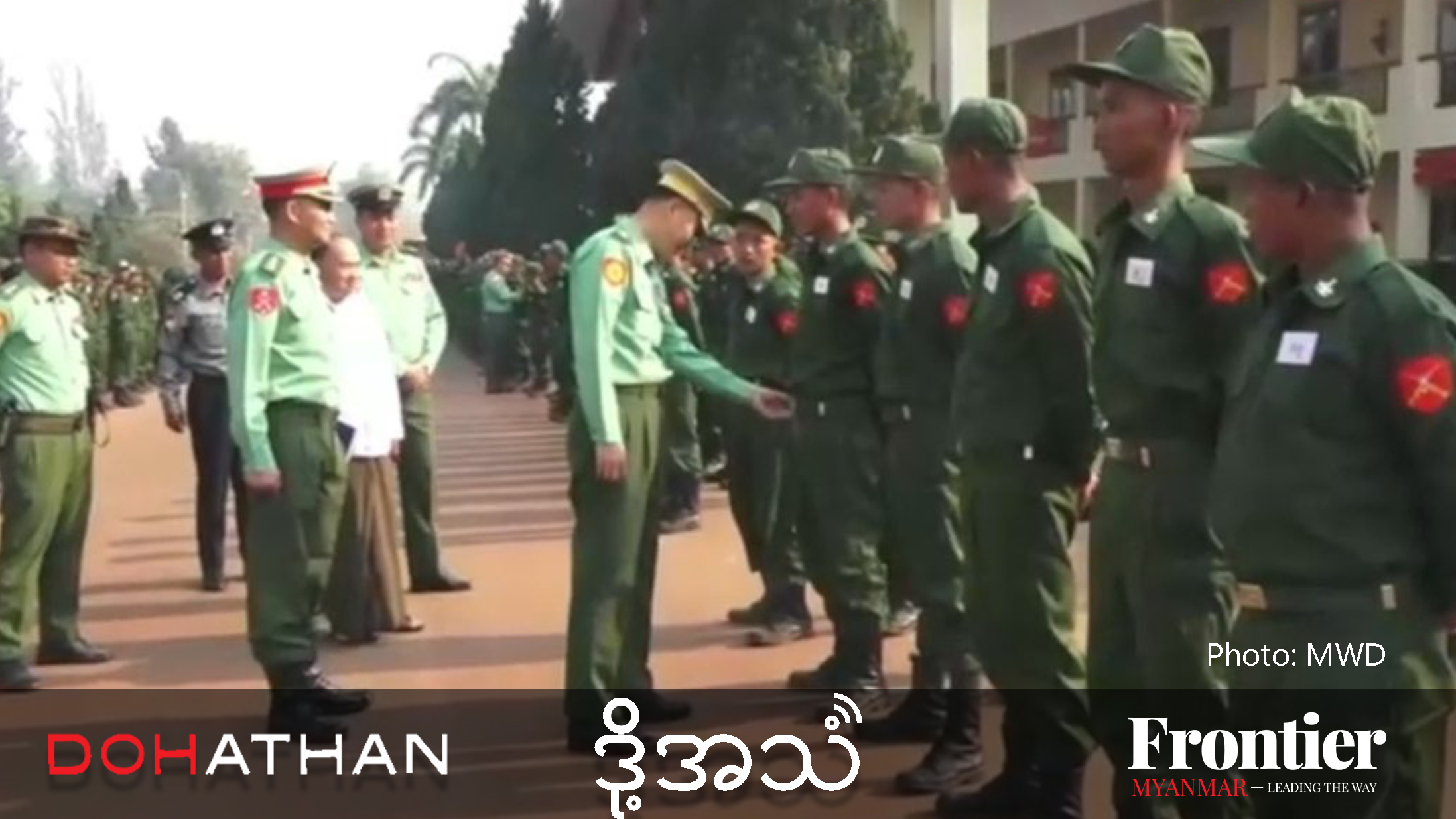If the Malaysian PM is serious about protecting the rights of Rakhine State’s Muslim community, there are plenty of places he could start far closer to home.
JUST WHEN the divisions over Rakhine State appeared insurmountable, an event occurred that momentarily managed to bridge the gaping chasm.
Those who have called for independent investigations into abuse allegations in Maungdaw and those placing their trust in military and government denials now have something they can all get fired up about: the naked opportunism of Malaysian Prime Minister Najib Razak.
His remarks at a December 4 rally – “Enough is enough”, “I refuse to shut my eyes and my mouth,” “We will continue to fight until the Rohingya are safe,” and so on – have rightly been denounced as a piece of political theatre. You don’t need to be a scholar of Malaysian politics to see Najib is desperate to shore up his waning popularity among conservative Muslims. It’s clear all the way from Yangon.
It’s not as if the issues Najib raised are unimportant, Frontier continues to call on the Myanmar government to conduct a transparent and credible investigation into allegations of abuses in Rakhine State, and the granting of access to aid workers and independent journalists to the affected area.
But if Najib was sincere, he would have raised his concerns through diplomatic channels. In the case that they needed to be expressed publicly, he would have done so in moderate language that would not inflame tensions further, rather than use the politicised and contested term “genocide”.
Support more independent journalism like this. Sign up to be a Frontier member.
Instead, he’s put his own political future ahead of bilateral relations (granted, he’s not the first politician to do that) and made any genuine international efforts to improve the situation in Rakhine more difficult. Najib’s comments will only further harden local opinion against the international community. That’s going to make the situation worse for Rakhine State’s Muslims. Thanks for nothing, Najib.
Another issue is that Najib has tried to take the moral high ground when he’s hardly in a position to do so. As some Malay commentators have pointed out, there are plenty of human rights abuses being perpetrated by his own government that he could address first.
A great place to start would be respecting the rights of those Muslims from Rakhine State who have sought asylum in his own country. As of the end of October, there were almost 55,000 refugees in Malaysia who identify as Rohingya, according to the United Nations Refugee Agency, as well as many more who are not recognised (some estimate there may be up to 150,000).
Malaysia should be commended for offering de facto protection to these populations, including allowing asylum seeker boats to land on its territory after they have been pushed back by the Thai navy, something that has reportedly been happening since 2012.
But because Malaysia is not a signatory to the 1951 UN Refugee Convention, even recognised refugees face significant difficulties in Malaysia. They are unable to study or even send their children to school, which means that many are illiterate.
They have no access to healthcare, and children born in Malaysia are unregistered. Unable to work legally, but with no other means of supporting themselves, they are vulnerable to exploitation by unscrupulous employers.
As Faisal Islam Muhammad Kassim, president of the Rohingya Society in Malaysia, noted in an interview after Myanmar stopped sending migrant workers to Malaysia last week, there are 90,000 Rohingya already in Malaysia ready and willing to fill any empty positions.
It’s not like any of this is a secret. One of the more in-depth studies, Equal Only in Name, which was published in 2014 by the Equal Rights Trust in partnership with Thailand’s Mahidol University, found that “the situation for refugees and asylum-seekers in Malaysia remains extremely precarious and they face constant risk of arrest, detention, financial penalties and judicially imposed caning”.
The rights abuses suffered by Rakhine State’s Muslims in Malaysia extend past the simple denial of basic human rights. It should not be forgotten that people smugglers operated death camps for several years along the border between Thailand and Malaysia.
On this issue, Malaysia has certainly dragged its feet. The camps on the Malaysian side of the border were only uncovered after Thailand launched its own crackdown, triggering the migrant crisis in mid-2015.
While Thailand has made some prosecutions since the camps were uncovered, Malaysia has instead blamed the trafficking solely on the Rohingya. If any serious investigation was ever undertaken into the camps, it appears to have been kept under wraps.
So if Najib is serious about protecting the rights of Rakhine State’s Muslim community, there are plenty of places he could start far closer to home.
This editorial was originally published in the December 15 issue of Frontier.






